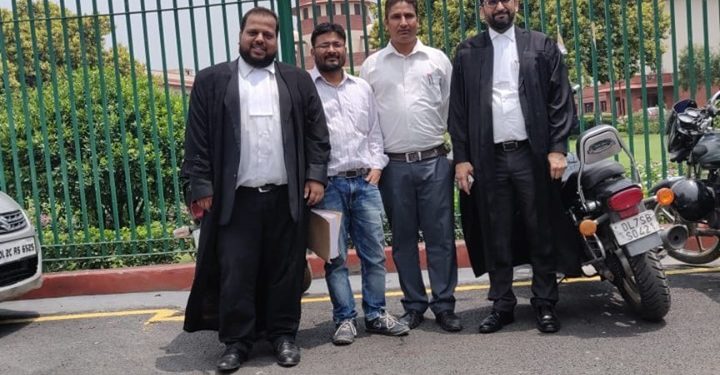Divorce is a legal separation between husband and wife, however, often the quarrelling spouses tend to forget that their duty as parents does not end. India has been long following the concept of child custody and in maximum cases, the issue of the separated or divorced parents is handed over to the mother only.
The Supreme Court on Friday asked the Centre to respond to a plea for putting a legal regime for “joint parenting” in cases of divorce of parents to ensure that the child got the love and affection of both the mother and the father even after their separation.
A bench of Justices S A Bobde and B R Gavai sought a response from the Union government on a PIL filed by NGO ‘Save Child Foundation’, which contended that breakdown of marriage was not the end of being a parent as the parental responsibility still continued. They also argued that fathers are left out without the love or interaction with their children, and made to only exist for paying up school fees and other expenses.

The petition sought a direction for reforms in laws related to child custody, considering the best interest of the child and her rights. It said the word ‘child custody’ gave negative connotations which can be substituted with the words ‘parenting the child life’. The petition insisted,
Due to rise in separation and divorce rates and in the changing society, children’s rights need to be secured, as the matter of the fact that due to the dispute between parents, children are unable to maintain personal relations and direct contact with both the parents on a regular basis, it stated.
Citing the guidelines of the United Nations Convention on the Rights of the Child, the petitioner stressed on the need for a paradigm shift, from the substitution model of the post-separation parenting to a rights-based approach of the parenting.
There should be clear guidelines about implementation of joint and shared parenting and responsibility in order to secure children’s direct contact with both the parents even if the parents are in a dispute so that a child grows up in a friendly and family environment and their overall development could not be affected. The emotional, social and physical development of young children has a direct effect on their overall development, the petition said.
It pointed out that at present, the Hindu Minority and Guardianship Act, 1956 and the Guardian and Wards Act, 1980 were being considered as the sole laws to deal with the custody of a child, which have been “miserably inadequate” as far as the best interests of the child were concerned.
Below were the first reactions, from the petitioners after heading towards their first step of equal and balanced parenting.
Join our Facebook Group or follow us on social media by clicking on the icons below
If you find value in our work, you may choose to donate to Voice For Men Foundation via Milaap OR via UPI: voiceformenindia@hdfcbank (80G tax exemption applicable)































Wonderful site. A lot of useful information here. I am sending it to some friends ans also sharing in delicious. And obviously, thanks for your sweat!